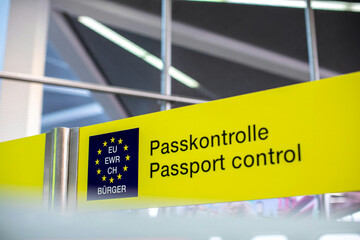Family, Friends and Taxes: A Comparative Analysis of Gift Tax Approaches in Different Countries
In this article, REVERA Private Clients lawyers examine the taxation of monetary gifts in Belarus, Russia, Germany, and Switzerland, focusing on the differences in taxation where gifts are made between individuals – both close relatives and unrelated persons. For the purposes of this article, we presume that the individuals involved are tax residents of the countries listed below.
Belarus
- А) Income received as a result of a gift from an individual who is a close relative is exempt from personal income tax. There is no obligation for either the donor or the recipient to pay tax or declare the income amount. Close relatives include relationships arising from direct bloodlines between parents and children, full and half siblings, grandparents and grandchildren.Thus, for example, monetary gifts received from an aunt or uncle will be subject to taxation (see point B).
- Б) Income received as a result of a gift from individuals who are neither close relatives, nor related by marriage, guardianship, trusteeship, and which exceeds BYN 11,516 in 2025 (approximately EUR 3,000.44), is subject to personal income tax at the rate of 13%.
Note: only the amount exceeding the threshold is taxable.
Russia
In Russia, monetary gifts are not subject to personal income tax (PIT), whether they are made between close relatives or unrelated individuals.
PIT arises for the recipient only if they receive as a gift:
- immovable property
- a vehicle
- shares, equity interests, units
- digital financial assets
- digital rights, including both digital financial assets and utility digital rights
cryptocurrency
and receive it from a person who is not a family member or a close relative (spouse, parent or child, including adoptive parents and adopted children, grandparents, grandchildren, full or half siblings).
In such cases, the recipient must independently file a personal income tax return with the tax authority at their place of registration and pay tax at:
- 13% if the gift is valued at no more than RUB 2.4 million (approx. EUR 26,257.80);
- or 15% on the amount exceeding RUB 2.4 million, plus RUB 312,000 (approx. EUR 3,413.51).
Taxation rules for shares and cryptocurrency differ.
Switzerland
Gift taxation in Switzerland depends on the canton. This article reviews Canton Vaud.
А) Gifts received from a person in a direct line (e.g., from mother to daughter) are exempt from tax. Tax is also not levied if the funds are provided for:
- education
- vocational training
- fulfilment of maintenance obligations (e.g., covering medical or household expenses).
If a mother gives her daughter real estate or funds for real estate: Such gifts do not fall under the exempt purposes above. In this case, taxation does not apply if the gift amount does not exceed CHF 300,000 per year. If the property value is less than CHF 300,000 – no tax is due; if it exceeds this amount – the entire sum is taxable.
The tax liability lies with the recipient. For example, if a mother gives her daughter real estate worth CHF 472,000, the tax rate will be 12.39%.
If a husband gifts money to his wife: No tax is levied. Spouses are exempt from gift tax.
Б) For gifts received from other persons, the tax-free threshold is CHF 10,000; any amount above this is fully taxable. The tax rate depends on the degree of kinship and the gift amount, and ranges from 1.2% to 50%.
Germany
Gift tax in Germany applies where the gift amount exceeds specific tax-free thresholds. The rate depends on the gift value and the degree of kinship between the donor and recipient.
There are three tax classes based on the relationship:
Tax Class I
- Spouses and registered partners
- Children and stepchildren
- Grandchildren of the above
Tax Class II
- Parents and grandparents
- Siblings
- Nieces and nephews
- Foster parents
- Sons- and daughters-in-law
- Parents-in-law
- Former spouse or former registered partner
Tax Class III
All other persons receiving property or gifts for specific purposes (e.g., friends, acquaintances).
Tax-free allowances
Examples of tax-free allowances (per 10-year period):
- Spouse or civil partner: EUR 500,000
- Child (Tax Class I): EUR 400,000
- Grandchild (where parents are alive): EUR 200,000
- Persons in Tax Class III: EUR 20,000
The tax liability lies with the recipient. The rate ranges from 7% to 50%, depending on the relationship and the value of the gift. Both the donor and recipient must notify the tax office within three months of the gift.
| Example: A mother gifts her daughter EUR 417,000. The relationship falls under Tax Class I, and the exemption is EUR 400,000. The tax is calculated as follows: (417,000 – 400,000) × 7% = EUR 1,190 |
Conclusion
Different jurisdictions take different approaches to gift taxation. In Belarus and Russia, gifts between close relatives are tax-free, whereas in Switzerland and Germany, such gifts may still be taxed.
It is also important to consider that the donor and recipient may be tax residents of different countries, where rules differ significantly. For example, in some cases, the donor may also be liable for tax. Therefore, we recommend consulting a tax professional before making or receiving a gift in order to avoid adverse tax consequences.
Author: Yaroslavna Zadesenskaya
Contact our lawyer for more details
Write to lawyerAttention Journalists: Use of REVERA website materials in publications is only allowed with our written permission.


